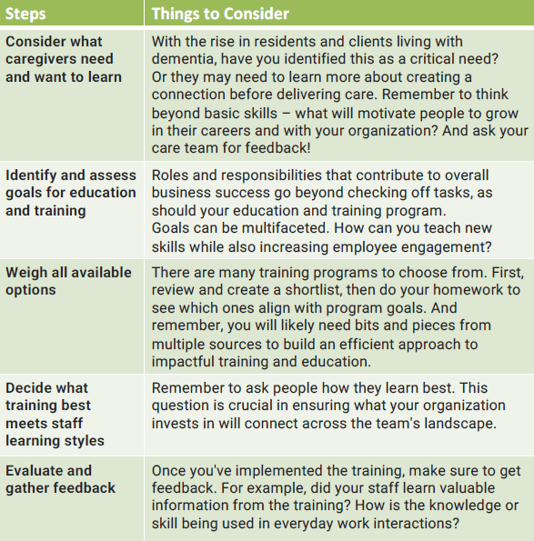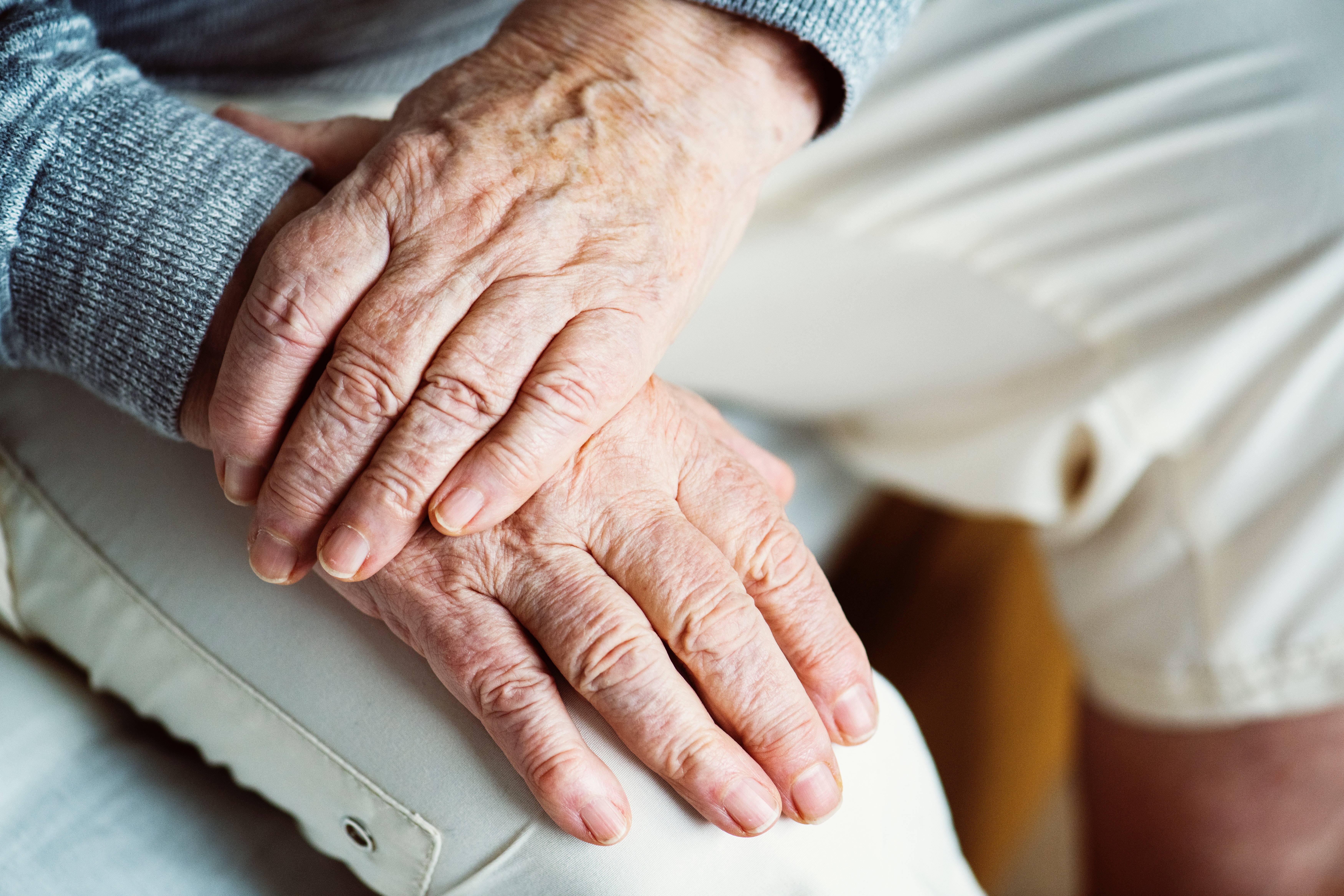Caregiver Training: Focus on What Works


Given today's staffing shortages and high turnover, let's set achievable goals for dementia training. After all, at the end of the day, don't we all want to be able to say, "the training works simply!". Of course, we do. If training works, that means it aligns with business goals and achieves positive outcomes.
"The goal of any training should be to empower caregivers, give them the tools to work with, and be flexible enough with the material to honor the uniqueness and diversity of each individual you work with." – Dr. Rose Joudi, Aging & Ethnic Diversity Consultant.
What does training mean?
Training is the action of teaching a person a particular skill or type of behavior.
In aging services, this means showing caregivers how to identify different scenarios and conditions to best care for sub-groups of older adults across emotional, physical, and other elements of health. In addition, training includes learning how a caregiver can take care of themselves in moments of stress and challenging situations. But is something else missing when we look through the lens of aging services and training trends? Let's dig into this a bit more.
Although there is no one-size fits all for training, there are some guiding principles to keep in mind as a helpful guide:
1. Consider what your caregivers need to learn
2. Identify and assess goals for training
3. Weigh all available options
4. Decide on what training best meets your staff's learning styles
5. Evaluate and gather feedback
Utilizing these principles, the following steps will help guide you in an effective dementia training program:

What are the benefits of training that works?
There are many benefits to selecting a high-quality training program, including the following:
- Improved caregiver performance
- A more engaged care force
- Organizational and mission-driven alignment
- Knowledge sharing across departments
- Training as a differentiator and competitive edge to your sales process
- Improved employer branding
In a McKnight's Senior Living column, Maria Wellisch shared that when caregivers feel confident in their skills, organizations will see "an improvement in family and staff relationships, improved quality of life for residents and lower your turnover of staff. Most importantly, you will see the relationships and interactions between staff and residents flourish."
In our next blog , we'll discuss the Shift to Experiential Learning.



